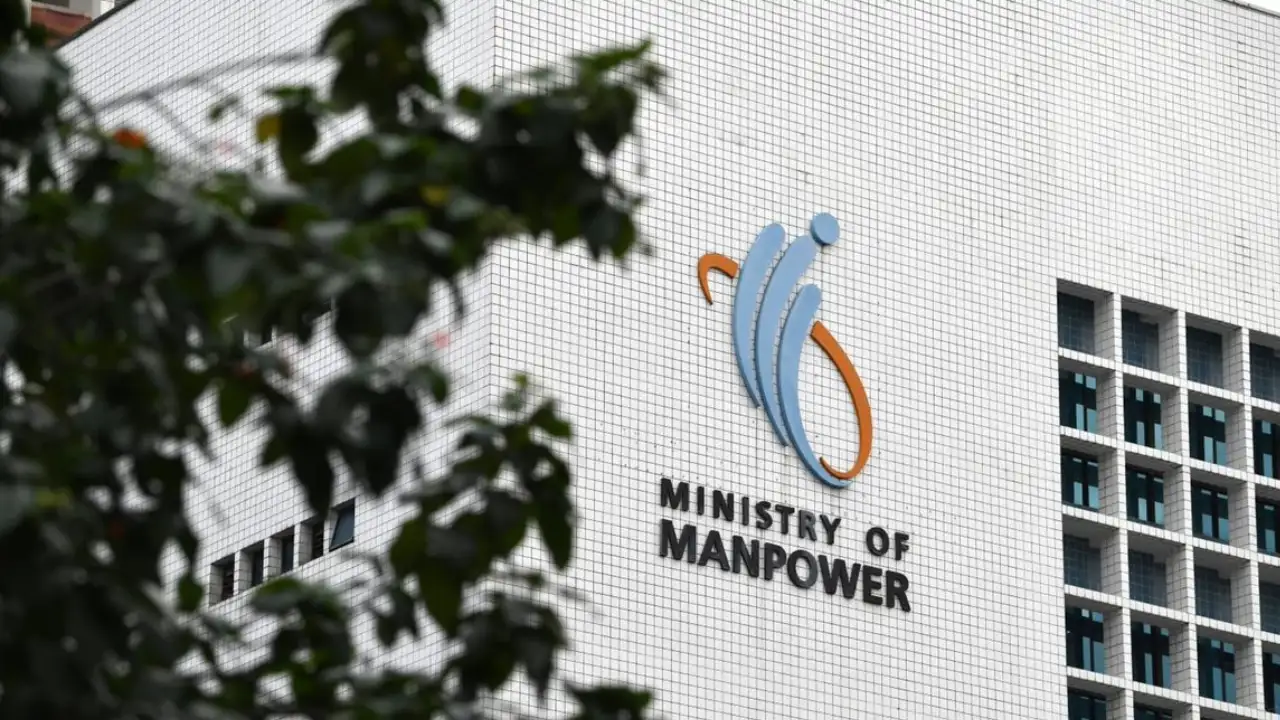Shrinking and Emerging Jobs in Singapore and SEA 2025
The writing has been on the wall for years, but now it's blazed across corporate Singapore in neon lights: your administrative assistant might soon be replaced by artificial intelligence, and frankly, that's just the beginning. The World Economic Forum's freshly minted Future of Jobs Report 2025 has delivered a sobering reality check to Singapore's high-earning professionals, revealing that nearly three in ten jobs will face "structural labour-force churn" over the next five years.
For a nation that prides itself on being ahead of the curve, Singapore finds itself in the eye of a perfect storm: 97% of local employers report significant AI exposure—the highest globally—whilst simultaneously grappling with a 36% skill disruption rate that's reshaping entire industries.
The Administrative Apocalypse
Let's address the elephant in the boardroom: traditional white-collar roles are vanishing faster than hawker stalls during Circuit Breaker. The WEF report identifies administrative assistants and data entry clerks as the most endangered species in Singapore's job ecosystem, with these roles experiencing the steepest decline across the entire Southeast Asian region.

"Administrative Assistants and Executive Secretaries" show a net decline of 18 positions per organisation surveyed, whilst "Data Entry Clerks" face an even grimmer fate with a 27-position net decrease. These aren't merely statistics—they represent thousands of middle-class jobs that have traditionally provided stable career pathways for diploma and degree holders.
The trend extends beyond Singapore's shores. Across Southeast Asia, similar patterns emerge: Indonesia, Malaysia, Thailand, and Vietnam all report significant declines in clerical and administrative roles. In the Philippines, "Accounting, Bookkeeping and Payroll Clerks" face a net decline of 26 positions, whilst Thailand sees administrative assistants dropping by 17 positions per organisation.
What's particularly striking is the speed of this transformation. Unlike previous technological shifts that unfolded over decades, AI-driven automation is compressing these changes into a five-year window. For Singapore's professional class, this represents the most significant career disruption since the transition from manufacturing to services in the 1980s.
| Sector | Job Title | Net Decline (per org) | Primary Reason |
|---|---|---|---|
| Administrative Services | Administrative Assistants & Executive Secretaries | -18 | AI automation, digital workflows |
| Data Processing | Data Entry Clerks | -27 | Automated data capture, OCR technology |
| Finance & Accounting | Accounting, Bookkeeping & Payroll Clerks | -26 (Philippines) | Cloud accounting software, AI processing |
| Manufacturing | Assembly & Factory Workers | Mixed decline | Robotics, automated production lines |
| General Office | Office Clerks (General) | Declining trend | Digital transformation, paperless offices |
| Customer Service | Call Centre Representatives | Declining trend | Chatbots, automated customer service |
| Banking & Finance | Bank Tellers | Declining trend | Digital banking, mobile apps |
| Retail | Cashiers & Checkout Operators | Declining trend | Self-checkout systems, e-commerce |

The Golden Rush: High-Value Tech Roles Explode
Whilst traditional roles wither, a new aristocracy of tech-savvy professionals is emerging. Singapore leads the regional charge in creating AI and machine learning specialist positions, with these roles showing a staggering net growth of 128 positions per organisation—the highest growth rate for any job category.
The salary figures are equally compelling. According to Morgan McKinley's 2025 calculations, AI/ML engineers in Singapore command annual packages between S$90,000 and S$170,000, with senior positions reaching S$254,000 according to Glassdoor data. Data scientists, meanwhile, earn between S$120,000 and S$200,000 annually, whilst business intelligence analysts can expect monthly salaries ranging from S$7,250 to S$9,750.
These aren't merely technical roles confined to Silicon Valley wannabes. Major employers including Sea Limited (Shopee's parent company), Grab, and Microsoft Singapore are actively recruiting across their Singapore and regional operations. Sea Limited's IMDA-Sea CLT Program specifically targets fresh graduates for positions in "Software Engineering, Data Analytics, and more" across Garena, Shopee, and their fintech arm.
The democratisation of these opportunities is perhaps the most remarkable aspect. Unlike traditional finance or consulting roles that demanded specific academic pedigrees, many tech positions prioritise demonstrable skills over formal qualifications.
| Sector | Job Title | Net Growth (per org) | Salary Range (SGD) | Key Skills Required |
|---|---|---|---|---|
| Artificial Intelligence | AI & Machine Learning Specialists | +128 | $90,000 - $254,000 | Python, TensorFlow, Deep Learning, Statistics |
| Data Analytics | Data Analysts & Scientists | +30 to +95 | $70,000 - $200,000 | SQL, Python, R, Tableau, Statistical Analysis |
| Business Intelligence | Business Intelligence Analysts | +16 | $87,000 - $117,000 | Power BI, SQL, Data Visualisation |
| Digital Technology | Digital Transformation Specialists | +20 | $90,000 - $150,000 | Change Management, Cloud Platforms, Agile |
| Cybersecurity | Network & Cybersecurity Specialists | High growth | $80,000 - $180,000 | Security Frameworks, Penetration Testing |
| E-commerce | E-commerce Specialists | +26 | $50,000 - $100,000 | Digital Marketing, Platform Management |
| Data Engineering | Big Data Specialists | +35 | $100,000 - $180,000 | Hadoop, Spark, Cloud Computing, ETL |
| Business Development | Business Development Professionals | +24 | $60,000 - $120,000 | Sales, Market Analysis, Relationship Management |
| Supply Chain | Supply Chain & Logistics Specialists | Growing trend | $55,000 - $100,000 | SCM Software, Analytics, Process Optimisation |
| Cloud Computing | Cloud Solutions Architects | High demand | $120,000 - $200,000 | AWS, Azure, GCP, DevOps |
| Product Management | Product Managers (Tech) | Growing trend | $80,000 - $160,000 | Agile, User Research, Technical Understanding |
| Sustainability | Sustainability Specialists | Emerging | $60,000 - $120,000 | ESG Frameworks, Carbon Accounting |
The Skills Arbitrage Opportunity
Here's where savvy professionals can capitalise on market inefficiencies. Whilst 54% of Singaporean employers cite "skills gaps in the labour market" as their primary transformation barrier, numerous pathways exist for career transitions—many of them surprisingly accessible.
AI Singapore's AI Apprenticeship Programme (AIAP) represents the gold standard for career switchers. This nine-month programme provides hands-on experience with real-world AI projects, and crucially, it's completely free for successful applicants. The catch? Selection is rigorous, requiring demonstrated foundational AI/ML knowledge. However, AI Singapore provides comprehensive preparatory resources through their Learn AI platform, including free courses and community membership.
For those seeking more structured learning, SkillsFuture credits can be deployed strategically:
- NUS SCALE offers Professional Certificates in AI and Machine Learning, with programmes ranging from short courses to comprehensive certifications
- NTU PACE's Advanced Professional Certificate in Data Science and AI specifically prepares learners for careers in data science, data engineering, and machine learning
- Vertical Institute's SkillsFuture AI Course provides a focused 21-hour programme conducted online, making it accessible for working professionals
The Google Career Certificates available through Coursera represent exceptional value. The Google Data Analytics Professional Certificate and Google Advanced Data Analytics Professional Certificate provide industry-recognised credentials, with many graduates reporting successful career transitions within six months.
Entry requirements for emerging roles:
| Job Category | Degree Required? | Alternative Pathways | Time to Transition |
|---|---|---|---|
| AI/ML Specialists | Preferred but not essential | AI Singapore AIAP (free), Online bootcamps | 12-18 months |
| Data Analysts | Not required | Google Career Certificates, SkillsFuture courses | 6-12 months |
| Business Intelligence | Not required | Microsoft Power BI certification, Tableau training | 3-6 months |
| Digital Transformation | Beneficial | Change management courses, Cloud certifications | 6-12 months |
| Cybersecurity | Not required | CompTIA Security+, Ethical Hacking courses | 6-12 months |
| E-commerce | Not required | Digital marketing courses, Platform-specific training | 3-6 months |
The Regional Perspective: SEA as Your Career Hedge
Singapore's professionals increasingly view Southeast Asia as an extended job market rather than foreign territory. The WEF data reveals remarkably consistent trends across the region, suggesting skills developed in Singapore translate effectively across borders.
Malaysia shows particularly strong demand for AI and Machine Learning Specialists alongside Supply Chain and Logistics Specialists, with business intelligence analysts commanding competitive salaries.
Thailand exhibits similar patterns, with AI specialists showing a net growth of 41 positions and digital transformation specialists growing by 20 positions per organisation.
Indonesia presents fascinating opportunities, with 83% of businesses expecting digitisation to impact their organisations—the highest rate in the region. The combination of a large domestic market and rapidly digitising economy creates compelling opportunities for Singapore-trained professionals.
Vietnam rounds out the regional picture with strong growth in AI specialists (+36 positions), e-commerce specialists (+26 positions), and business development professionals (+24 positions). Given Vietnam's emergence as a manufacturing and technology hub, these trends likely represent sustainable long-term opportunities.

The Contrarian Play: Embrace the Transition
Whilst media narratives focus on job displacement anxiety, the data suggests a more nuanced reality. Singapore's unemployment rate remains remarkably stable at 2.0% as of March 2025, with job vacancies actually increasing from 77,500 in December 2024 to 81,100 in March 2025.
The key insight? This isn't a zero-sum game between humans and machines—it's a reallocation of human capital towards higher-value activities. The WEF report indicates that 71% of Singaporean employers plan to "upskill workforce" whilst 56% intend to "hire staff with new skills." This suggests a preference for internal development over external replacement.
For professionals in declining roles, the transition window remains open. Administrative professionals who develop business intelligence skills, data entry clerks who pivot to data analytics, and executive assistants who embrace project management technologies can position themselves advantageously.
The Execution Framework
Based on the data, here's a practical roadmap for career-conscious professionals:
Phase 1: Assessment (Next 30 Days)
- Evaluate your current role against the WEF declining categories
- Identify transferable skills that align with growing job categories
- Research salary expectations for target roles using Morgan McKinley and Glassdoor data
Phase 2: Skills Development (Months 2-12)
- Apply for AI Singapore's AIAP programme (if eligible) or begin preparatory learning
- Enrol in Google Career Certificates using SkillsFuture credits
- Build a portfolio of projects demonstrating practical capabilities
Phase 3: Market Entry (Months 6-18)
- Target regional employers with consistent growth patterns (Sea Limited, Grab, major MNCs)
- Leverage Singapore's position as regional headquarters for broader SEA opportunities
- Network within Singapore's tight-knit professional community
Phase 4: Premium Positioning (Years 2-5)
- Develop specialised expertise in high-growth niches (AI ethics, digital transformation, cybersecurity)
- Consider regional assignments to build cross-cultural competencies
- Mentor others through the transition, establishing thought leadership

The Bottom Line
Singapore's job market transformation represents both existential threat and generational opportunity. Whilst traditional administrative roles face genuine decline, the data suggests that professionals who act decisively can position themselves advantageously in the emerging economy.
The democratisation of technical education, combined with strong employer demand and regional growth patterns, creates multiple pathways for career transition. For Singapore's high-earning professionals, the question isn't whether change is coming—it's whether you're prepared to profit from it.
The window for strategic career repositioning remains open, but it's narrowing. In a market where 28% of jobs face structural change over five years, standing still is effectively moving backwards. The Financial Coconut's advice? Start planning your transition today, because tomorrow's economy rewards the prepared.
Let us know what you think about this topic, and what do you want to hear next.
Sources:
- World Economic Forum Future of Jobs Report 2025
- Singapore Ministry of Manpower Labour Market Report Q1 2025
- Morgan McKinley Singapore Salary Guide 2025
- AI Singapore Apprenticeship Programme
- Sea Limited Careers
This article reflects on publicly available data and should not be considered personalised career advice. Readers should conduct their own research and consult relevant professionals before making career decisions.
You can now be our community contributor and make a pitch to have your favourite personality be on our show.
Join our community group and drop us your insights on this topic.

-4.png?width=50&name=Square%20(2)-4.png)









Let us know what you think of this post